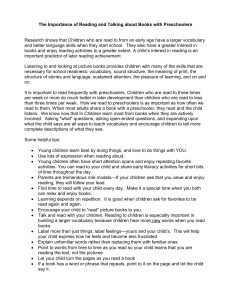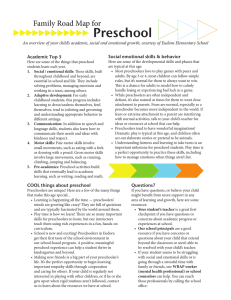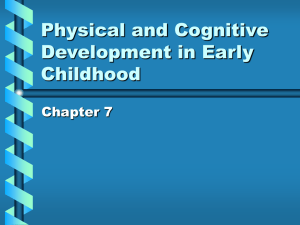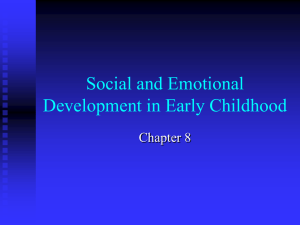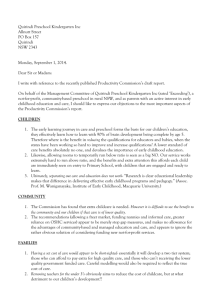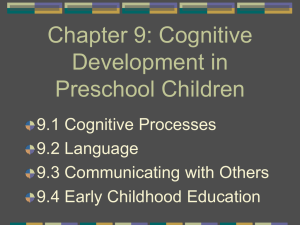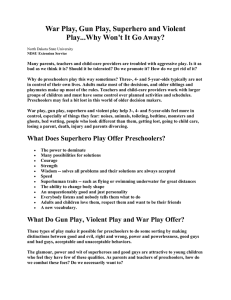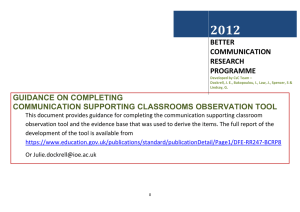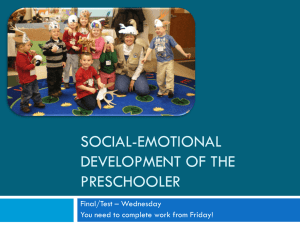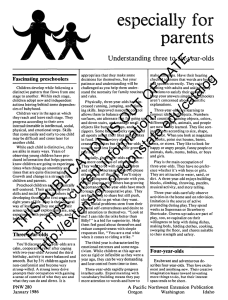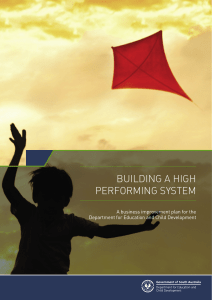Introductory Review Game 103
advertisement
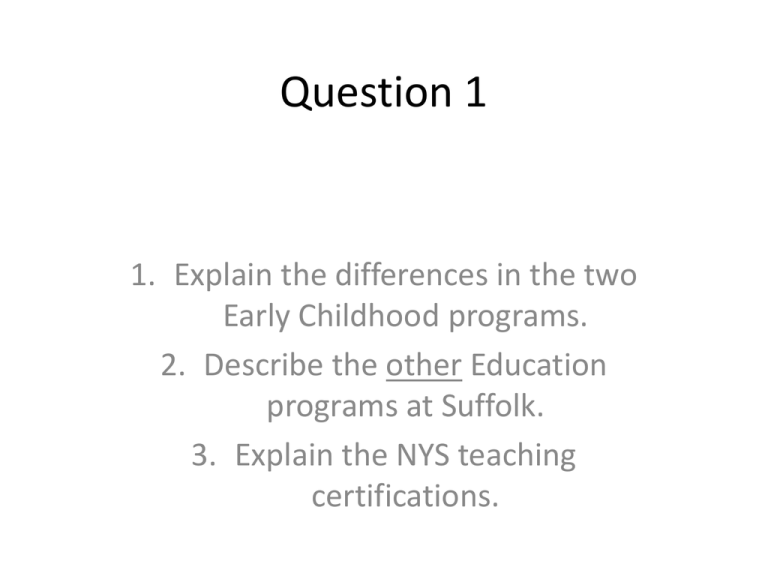
Question 1 1. Explain the differences in the two Early Childhood programs. 2. Describe the other Education programs at Suffolk. 3. Explain the NYS teaching certifications. Question 2 • 1. “___________ is a child’s work.” • 2. “Every time we seek to ________ a child something, we prevent him from inventing it for himself.” • 3. The guiding set of principles, based on research and expertise, that should be followed by Early Childhood educators is called “_____________________.” Question 3 • 1. Explain process vs. product. • 2. Explain open-ended vs. closed-ended as to questions and activities. • 3. Explain instructor vs. facilitator. Question 4 • Give 3 reasons why academically-oriented preschools are inappropriate as compared to play-oriented preschools. Question 5 • Name 3 room areas in an appropriate preschool classroom and, for each, 3 appropriate materials you might find in them. Question 6 • Name 3 appropriate time periods in an appropriate daily schedule for preschoolers, and what should happen during each. Question 7 • Name 3 appropriate ways that math can be “taught” to preschoolers. Question 8 • Name 3 appropriate science activities for preschoolers and describe them. Question 9 • Name 3 social studies themes that are appropriate for preschoolers and explain why. Question 10 • Name 3 things that a curriculum needs to be (3 characteristics of qualities) so as to be appropriate for young children. Question 11 • • • • Explain: 1. constructivism 2. multiple intelligences 3. stages of psycho-social development Question 12 • Discuss one developmental characteristic of children in the preschool stage in each of these areas: • 1. cognitive • 2. physical • 3. social Question 13 • Discuss three appropriate roles that a teacher of young children should play in relation to an activity. Question 14 • Name 3 very common things found in preschools that are inappropriate. Question 15 • Explain why each of these is inappropriate for young children • 1. the letter of the week • 2. the calendar • 3. homework Question 16 • • • • Explain (as per an activity plan) 1. readiness 2. motivation 3. introduction Question 17 • • • • Explain 1. projects vs. themes 2. discipline vs. punishment 3. nature vs. nurture Question 18 • • • • Define 1. cognitive 2. affective 3. creative Question 19 • Discuss 3 ways one can develop a program that shows and teaches an appreciation for diversity. Question 20 • Name 3 of the most important things that a good activity can help develop in children. Question 21 • Name and discuss 3 appropriate sources from which child-centered curriculum ideas can be developed. (Where do ideas for activities appropriately come from?) EDU103 The Introduction or Review Game
